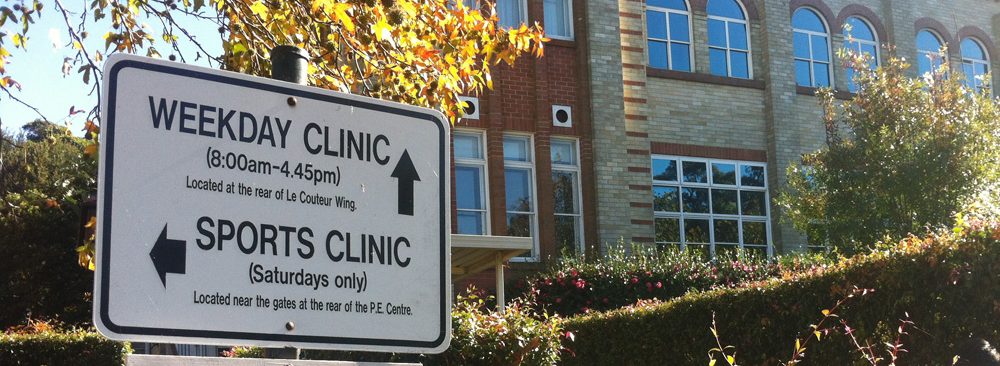What do you know about Concussions?
While concussion can occur in any sport we see more incidents during rugby and football season. Concussion in sport has been discussed again recently in Melbourne with the Australian football codes and medical experts coming together.
A concussion is an injury to the brain, usually caused by a blow to the head that results in temporary loss of normal brain function. A person does not need to lose consciousness to suffer a concussion.
The brain floats inside the skull, cushioned gently by the surrounding spinal fluid. An abrupt blow to the head, or even a rapid deceleration, can cause the brain to bounce against the inner wall of the skull. There is potential for tearing of blood vessels, pulling of nerve fibres and bruising of the brain.
Symptoms
Common symptoms include headache, vision disturbance, dizziness, vomiting, confusion, memory loss, ringing in the ears, and loss of balance.
A concussion can affect memory, judgment, reflexes and muscle coordination.
Behavioral changes such as inappropriate emotions, irritability, feeling nervous or anxious may be seen. Poor attention, sensitivity to light and noise, lack of concentration and sleep disturbance can also be symptoms of concussion.
Perseverating (repeating the same thing over and over), despite being told the answer each time can occur. For example, in a 2012 game against Scots, a concussed player asked repeatedly, “Did we win? Did I play well? Did I play well? Did we win”? In this case it was another player who sought medical attention for the concussed player and that’s what we need. Players, coaches, parents, staff – everyone being aware of concussion and seeking medical advice as necessary.
On the sideline the Pocket Scat test can be used testing memory and balance.
For the past few years we have been doing pre season concussion testing on all rugby players and firsts and seconds football players at Newington. This involves a paper and pen, 90 second, digit symbol substitution test DSST. Basically the boys have to match symbols to numbers and get as many done as they can in the time allotted. If a boy suffers a concussion he will repeat the test in the clinic to compare. This test is a useful tool but must be used in conjunction with player symptoms and other testing such as Scat 2 test.
On the sideline the rule is: if a concussion is suspected then the player is removed from play and must not be allowed back on. Medical examination is required. So if in doubt – sit it out.
Adolescents (10 – 18 years) need a conservative approach as studies have shown that their brain takes longer to recover. The Medical Practitioner responsible for treatment will advise on how long the player should rest from physical activity. In some cases shorter school days and/or reduced school work may be required to ensure mental rest.
The Graduated Return To Play (GRTP) program
Each stage of the GRTP takes at least 24 hours with no symptoms developing. If symptoms develop then the player rests for 24hours and starts that stage again.
- Stage 1 – rest and recovery determined by the Medical Practitioner
- Stage 2 – walking, swimming or stationary bike at a low intensity
- Stage 3 – progress to running drills
- Stage 4 – complex training drills – no contact, start resistance training
- Stage 5 – medical clearance must be obtained to return to full contact training
People who have had a concussion seem more susceptible to another one, particularly if the new injury occurs before symptoms from the previous concussion have completely gone away. If a player suffers a second concussion in a season then it is recommended that he does not play for the remainder of the season.
Most children with a mild head injury make a full recovery but symptoms such as tiredness and mild behavioural changes may persist for up to 2-3 months.
The International Rugby Board has excellent concussion guidelines and electronic education modules. Click here to read these.
I am looking forward to the season and really enjoy watching both football and rugby.
Sister Margaret Bates
School Nurse





